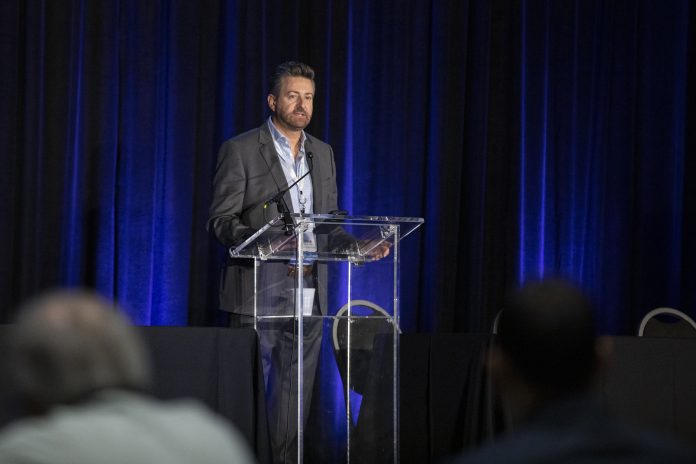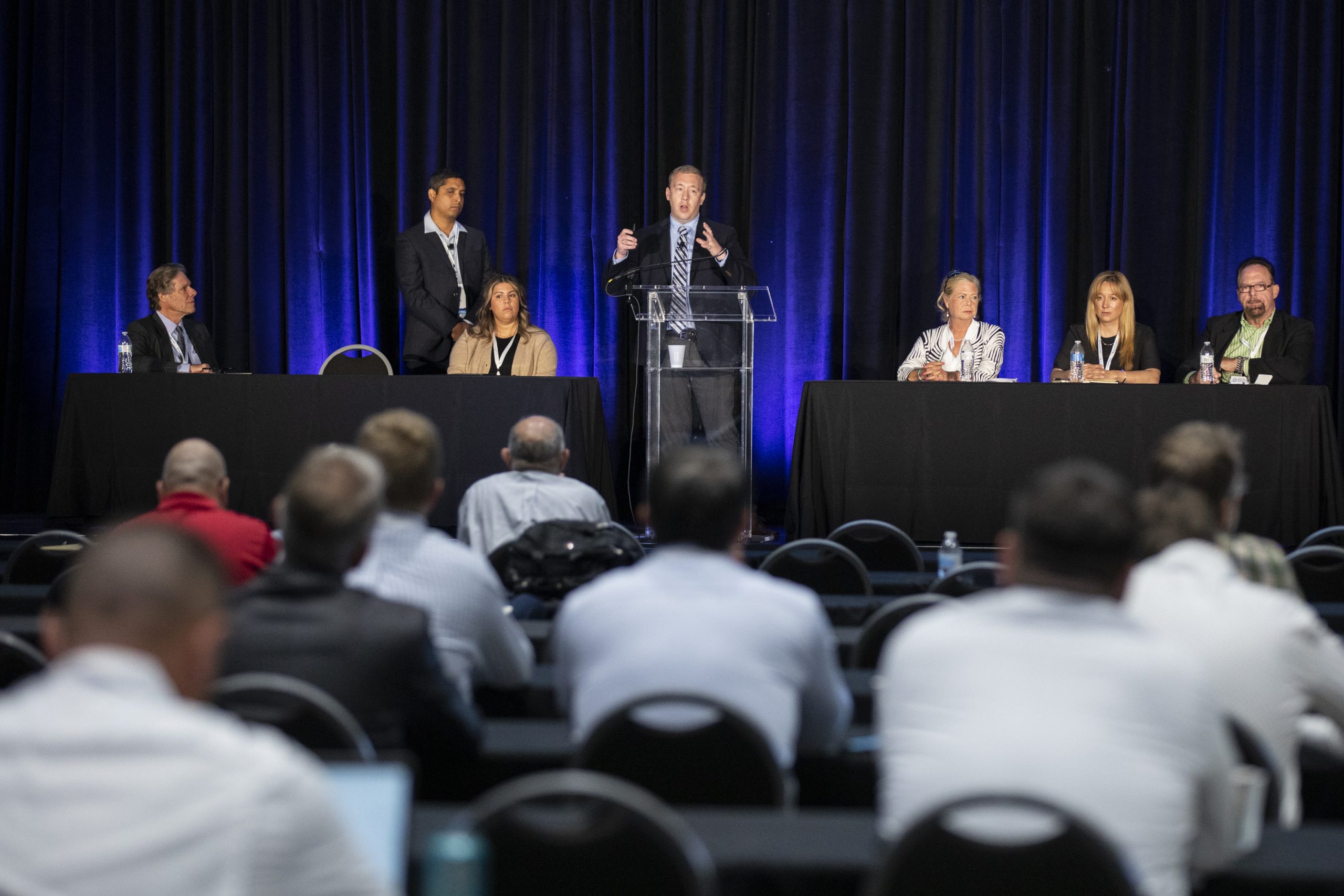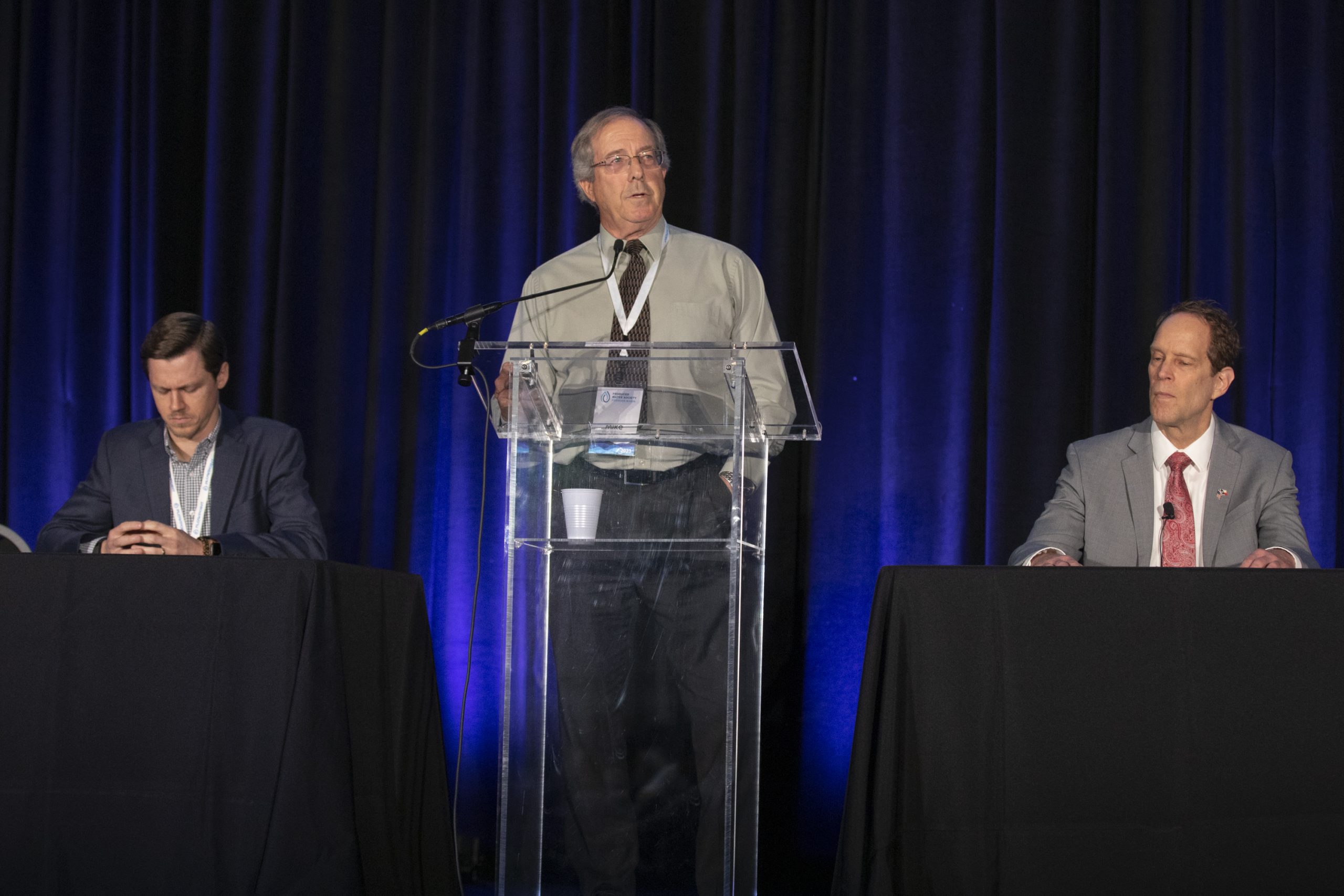
MIDLAND What to do with the 15-18 billion barrels per day of water that’s produced in the fracking of oil and natural gas wells in the Permian Basin is the big question being reviewed Tuesday and Wednesday at the Produced Water Summit and spokesmen say great progress is being made.
Produced Water Society President Steve Coffee of Austin said Tuesday morning as 300 participants listened to a panel discussion at the Horseshoe Pavilion that treated produced water has already been used to green up the San Joaquin Valley in Central California and the Abu Dhabi area of the United Arab Emirates.
Coffee said the water that comes out of wells chemically contaminated is being used to grow non-edible crops like hemp and to recharge underground aquifers.
“They’re making the desert green in the UAE, which is great,” he said, adding that the Shell Oil Corp. is involved there. “It looks like a cornfield.”

Keynote speaker Robert Crain, executive vice president of Texas Pacific Water Resources in Midland, said another key recent development has been to move from the deep discharge of produced water via saltwater disposal wells to shallow discharge to decrease the incidence of earthquakes in the region.
Crain said the passage of House Bill 4856, sponsored by State Rep. Draw Darby of San Angelo, this year in Austin was very helpful with its authorization of the Texas Commission on Environmental Quality to manage the recharge of aquifers with produced water.
He said the entire energy industry “is trying to get beneficial re-use sooner rather than later by coming up with the technology to fit an economic model.”
Whitney Dobson, vice president of capital projects for Aris Water Solutions of Houston, will speak during a panel discussion Wednesday about a greenhouse study her company just did with the Texas AgriLife Agency at Texas A&M University in College Station on using produced water to grow cotton and rye grass.

Dobson said Aris is working with the TCEQ, Texas Railroad Commission and New Mexico Environmental Department to expand the program, which in some instances got better results with desalinated produced water than with regular groundwater.
“ExxonMobil, Chevron and ConocoPhillips are usually big competitors, but they are all in with this integrated team effort,” she said. “The greenhouse is one thing. Now we’re going to do it for real with pilot projects in the fields.”
Dobson said the produced water is desalinized and thermally distilled to remove as many of the chemicals as possible.
“We’re looking at non-consumptive products,” she said. “If you had a plentiful water supply source, what would you grow?”



